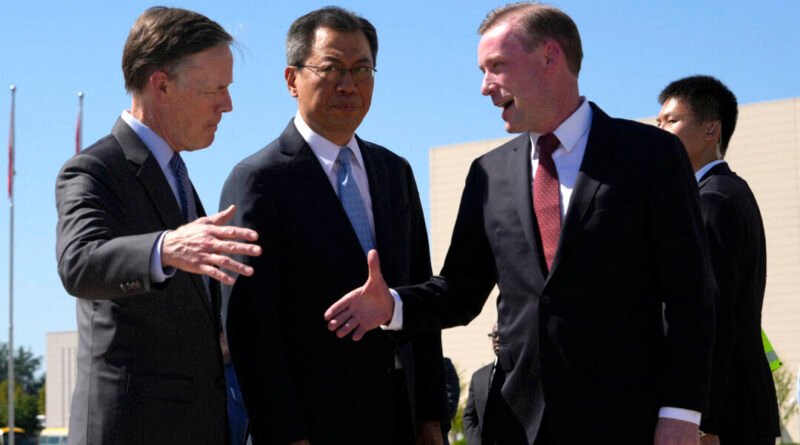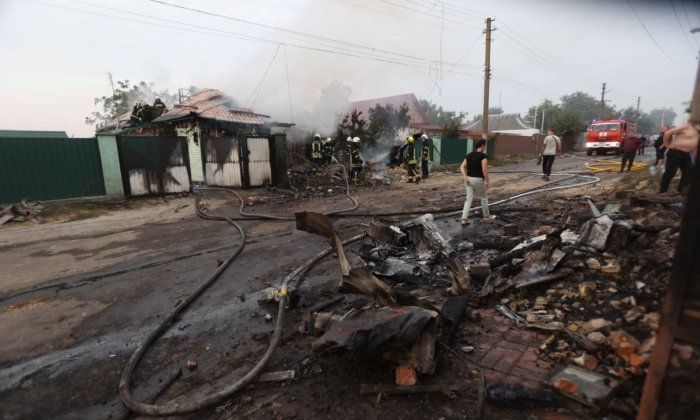Jake Sullivan’s trip to Beijing occurs in the midst of China’s aggressive actions towards the Philippines, Taiwan, and Japan.
White House national security adviser Jake Sullivan has arrived in Beijing for a three-day visit ahead of the U.S. general election in November and recent statements condemning China’s aggression in the South China Sea.
Sullivan is set to meet with Chinese Foreign Minister Wang Yi to discuss various key issues such as counternarcotics cooperation, military-to-military communication, and AI safety and risk discussion, as stated by White House national security spokesman John Kirby
here.
“He will also address our security concerns in the Indo-Pacific region, including escalating tensions in the South China Sea, Taiwan Strait, and other issues related to unfair economic practices,” Kirby added. “All these matters will be up for discussion.”
The communication between Sullivan and Wang has been crucial in responsibly managing the competition and tension between the two countries, according to Kirby’s comments on the Biden administration’s approach to China.
Sullivan’s visit coincides with increasing aggression by China towards its neighbors, particularly the Philippines, Taiwan, and Japan. Recent provocative actions by China in the South China Sea led to the State Department issuing a
statement in August condemning China’s behavior and reaffirming U.S. commitment to its mutual defense treaty with the Philippines.
During a
briefing about Sullivan’s trip on Aug. 23, a senior administration official
stated that Sullivan and Wang would also discuss North Korea, the Middle East, Burma, Taiwan, the South China Sea, and the U.S. concerns about China’s support for Russia’s defense industrial base.
…
Sullivan’s visit to China is the first by a U.S. national security advisor since 2016 when Susan Rice of the Obama administration
undertook the trip and met with various Chinese Communist Party (CCP) officials, including Chinese leader Xi Jinping.
China’s Aggression
The timing of Sullivan’s trip comes as China is increasingly belligerent towards its neighbors.
Japan’s defense ministry reported on Monday that a Chinese military plane had
violated the country’s airspace over waters in southwestern Japan for the first time. Japanese fighter jets were scrambled to intercept the Chinese plane following the intrusion.
In response to the January election of Lai Ching-te as Taiwan’s president, China has ramped up coercion against Taiwan. Taiwan’s defense ministry
reported spotting 50 military planes and vessels in the vicinity of Taiwan in the past 24 hours on the morning of Aug. 24.
The Study of War and the American Enterprise Institute recently
released a report warning that China could seize the Kinmen Islands in the coming months, as Xi may believe the United States won’t respond rapidly and forcefully given its own general election and the conflicts in Ukraine and Gaza.
In the South China Sea, there has been a series of
sea and
air confrontations between China and the Philippines in recent weeks. On Aug. 25, Manila
reported that one of its fisheries vessels had to abort its resupply mission due to engine failure after a collision with Chinese Coast Guard ships.
Despite widespread international criticism, China persists in asserting ownership claims within the internationally-recognized waters of other countries in the South China Sea.
In 2016, the Permanent Court of Arbitration in The Hague
rejected Beijing’s “nine-dash line” claim to about 85 percent of the South China Sea’s 2.2 million square miles, stating that China’s territorial claims were inconsistent with the U.N. Convention on the Law of the Sea.
On Tuesday, another Philippine resupply mission in the South China Sea was halted.
According to the Philippine Coast Guard, 40 Chinese vessels, including six Chinese Coast Guard ships, prevented two vessels carrying supplies to personnel aboard the agency’s flagship BRP Teresa Magbanua.
During the U.S. Indo-Pacific Command’s military forum in Manila on Tuesday, Philippines Defence Secretary Gilberto Teodoro
pointed out that China is the “biggest disruptor” of peace in Southeast Asia.
Gordon Chang, a senior fellow at the Gatestone Institute and author of “The Coming Collapse of China,” cautioned that the Philippines could become the “next Ukraine,”
as per his article published on Aug. 26.
Chang stated that Xi “needs a quick political victory” due to domestic vulnerabilities, and seizing Taiwan isn’t currently viable. As a result, Xi may target the Republic of the Philippines as a weaker neighbor, leading to potential regional conflict.
Luo Ya and Reuters contributed to the report.




